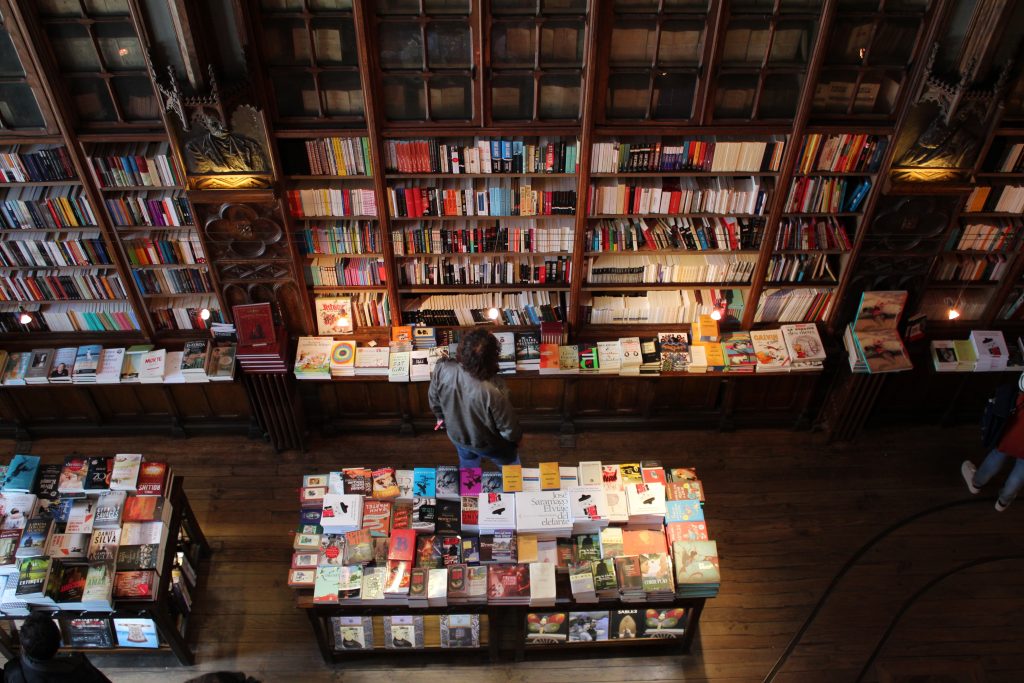Ask an author to name the most challenging part of the publishing process, and there’s a good chance he or she will say distribution. Authors can have very different perspectives on it however. Some are bursting to reach millions of readers around the world, while others are content to fill their garage or shed with boxes of books, waiting for someone to buy them.
We encourage our authors to be brave and ambitious. You’ve poured your heart and soul into your book, you owe it to yourself, and to those millions of potential readers, to bring your book to the world.
If anyone tells you there is no point doing it, that self-published books don’t sell, don’t listen to a word of it; they couldn’t be more wrong. Self-publishing is a burgeoning and growing trade. According to Bowker, the American ISBN agency, sales of self-published books increased by 40% in 2018. According to Mike Shatzkin, in his influential book The Book Business: What Everyone Needs to Know, self-published books account for 30% of total book revenue in the US; which amounts to $1.26 billion dollars. Yes, you read that right, 1.26 billion! If you believe in your book, and if you believe in yourself as an author, there’s no reason why you can’t be a publishing success.
‘Brick & Mortar’ Bookshops
A large quantity of books in Ireland are still sold through ‘brick and mortar’ bookshops. These include large franchises like Easons and Waterstones, as well as independent booksellers. Getting brick and mortar retailers to stock your book is therefore very important. If you don’t, you’re cutting yourself off from a big share of the book-buying public.

Wholesalers
The easiest way to get stocked is to go through a wholesale distributor. Rather than going to each bookshop individually, the wholesaler will distribute them to numerous ones for you. Easy, right? Unfortunately not. Convincing a wholesaler to distribute your book is not easy, but getting the right advice helps enormously.
There are three large book wholesalers in Ireland; Argosy, Gill Distribution and Easons. Argosy generally supply independent bookshops, while Easons supply their own chain-stores and other franchises. So, how do I get them to accept my book? Firstly, don’t just stick your book in the post and expect them to distribute it. Book wholesalers are commercial entities first and foremost; they will agree to distribute a book if they think it can sell. You need to convince them that your book will sell, and here are some tips to help you do that.
- A professionally printed book, with an eye-catching cover, helps enormously. This is where Lettertec clients, who benefit from our bespoke, ota-binding printing methods, have the edge. If your book is cheaply produced, with substandard cover art, it won’t be accepted.
- Mention how many copies of the book you’ve sold to date. The more books you’ve sold, the more likely the wholesaler will be to accept it.
- Mention any publicity you’ve received to date, as well as any marketing activity. This can include anything from features in your local newspaper to a book review from a book influencer on Instagram.
- The promoting you have done is important, but even more important is the promoting you plan to do. The wholesalers want evidence of sales, but they also want evidence of likely future sales. To convince them, mention any TV or radio interviews you have scheduled, as well as upcoming book reviews, social media marketing campaigns, book launches, book events, reading tours, appearances at book festivals, features in newspapers, and any other PR activity.
- Have an ISBN – This is a catalogue number for books. It’s a must-have if intending to stock in bookshops. If you don’t have one, you won’t be accepted. Lettertec authors can purchase an ISBN through us.
Keep in mind, wholesalers don’t provide this service for free. When the wholesaler’s and the bookshop’s fees are combined, it can be as much as 55% of the book’s ‘list-price’ (the price the book sells for in the bookshop). Sometimes even more. On balance however, it’s worth it.
The Personal Touch
Wholesalers are not the right option for every author. You may have written a local history book for example, and your book may only be relevant for local bookshops. Then you need to approach the bookshops directly. One great tip is to do some research. Learn more about the bookshop before approaching. Who shops there, and what kind of books sell there? What is the bookshop’s ethos and philosophy? When you know this, you’ll be in a better position to argue that your book is perfect for that bookshop.
Having a strong PR plan is just as important when approaching bookshops directly. If you’ve organised an event or book launch for example, this will help convince management that your book will sell. Posters, author business cards, bookmarks and other promotional material make a big impression. You appear professional, and they help sell your book.
Offline or Online?
You don’t have to choose between offline and online. Online retailing can be a good addition to offline channels, and visa versa. A professional marketing strategy will explore all channels and ensure they mutually complement each other.
When it comes to selling books online, the options are limitless, although not all of them suit self-publishers. You could sell your soul to Amazon – that is one option! Amazon are the market-leader when it comes to online book-retailing; 3/4 of eBooks are sold through Amazon for example. Some of the KDP (Kindle Direct Publishing) options come with exclusivity clauses however, which means you can only sell through Amazon and you’re tied to their programmes. This is a shame, as it’s a big world out there, and there are hundreds of millions of readers who don’t shop on Amazon.
In addition to the large tech giants, there are a number of smaller, bespoke options worth exploring. A new Irish company called buythebook.ie is one. They cater exclusively for self-published Irish authors.
As distributing can be daunting, some authors are tempted to focus on eBooks exclusively. This is a bad idea. Sales from eBooks have flattened in recent years, while sales in physical books have soared. According to a 2019 report by the AAP (the Association of American Publishers), physical books accounted for 85% of revenue from book sales, while eBooks accounted for 15%.
Lettertec’s Bookstore
Call us biased, but our online bookshop is a fantastic resource for Lettertec authors. All our clients have the opportunity to sell their books through a beautifully designed e-commerce site. Joining authors like Eileen Keane Haly and Eddie O’Mahony. We handle all invoicing, payment, and postage and package, making things easy and convenient. Unlike Amazon, we don’t require an exclusivity agreement.


What Next?
Every author is different. What works for one author may not work for another. If you’re a local historian, selling through an international wholesaler like Gardner’s Books won’t work. Similarly, if you’ve written a romance novel, and you want to be the next EL James, stocking exclusively in your local bookshop won’t work. So, take the above advice on board, and decide what path is right for you. One final piece of advice from us is, be brave and dream big! Millions of self-published books are bought and enjoyed each year. If you believe in your book, and you follow our advice, there is no reason why you can’t enjoy publishing glory!





